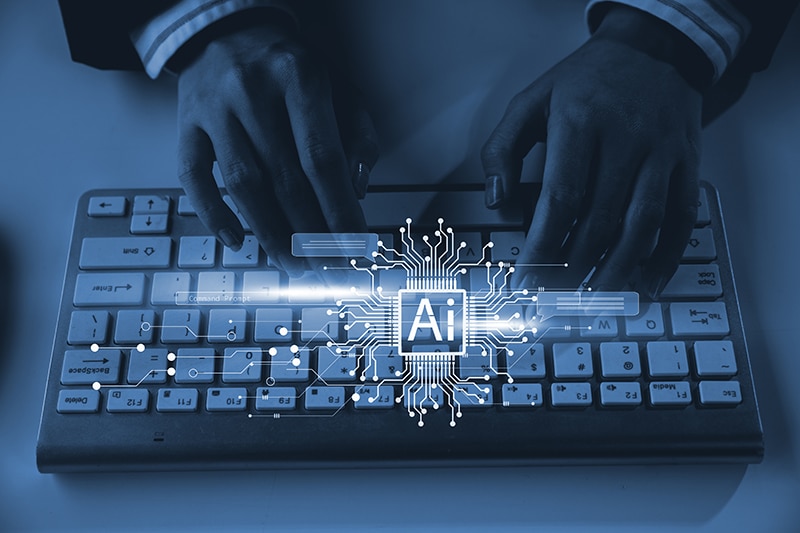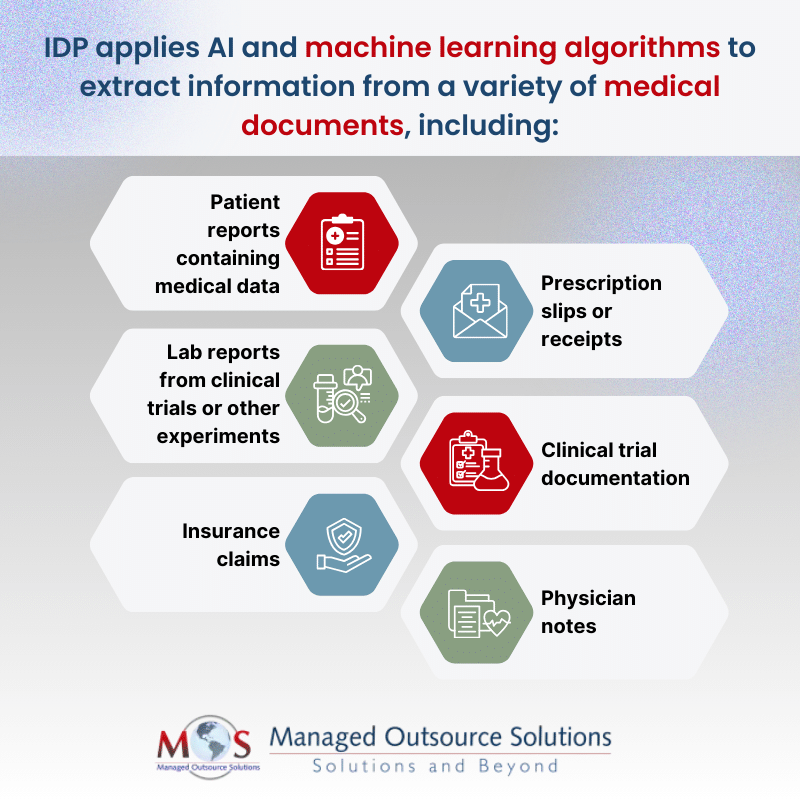Artificial intelligence (AI) continues to revolutionize many industries. AI’s potential in healthcare is on the rise, given its ability to provide insights from massive data sets swiftly and accurately. Precise healthcare data has a wide array of potential applications that cover everything from diagnostics to medical record review and clinical trials. The first step in this transformative journey is document digitization. Moving from paper records and manual workflows to digital workflows is necessary to harness the potential of AI in healthcare document digitization. In fact, an increasing number of healthcare businesses are relying on a reliable document conversion company to embrace expertise and transform data management.
AI-powered Healthcare Document Digitization
In healthcare, managing patient information efficiently is crucial. Clinicians need quick access to up-to-date medical information at the right time to provide care. By efficiently extracting data from medical records, prescriptions, and lab reports, AI-powered solutions for healthcare document workflow can deliver this information quickly.
AI-powered document digitization in healthcare is continuously evolving. It applies AI and machine learning algorithms to digitize physical documents and store them in digital storage systems such as Electronic Health Records (EHRs). Optical character recognition (OCR) software extracts and repurposes data from scanned documents. It locates and recognizes characters such as letters, numbers, and symbols, puts them into words and sentences, and enables access to and editing of the original content.
However, medical data is complex and simply converting scanned images into editable text may not be enough. AI-powered healthcare document digitization offers the solution. It utilizes intelligent document processing (IDP) to automatically convert physical or scanned healthcare documents into structured, searchable, and actionable digital data.
Digital transformation in healthcare is no longer optional; it’s essential for improving access, accuracy, and efficiency. AI can also classify and organize healthcare documents to align with electronic medical records (EMRs) and other systems. This allows for automation of various processes, like claims processing and patient onboarding. They also ensure the security and privacy of sensitive patient information in accordance with HIPAA.
Automating Medical Record Review with AI
Evaluating complex medical records manually is a difficult and error-prone task. Key challenges when dealing with medical file reviews include:
- Presence of data duplicates due to manual data entry or data stored in various locations
- Difficulty obtaining relevant information from unstructured, unorganized files
- OCR cannot read handwritten text in healthcare documents
- Omitting relevant facts can affect decision-making
Today, AI-powered document processing is proving to be a game-changer, allowing lawyers, medical evaluation firms, and insurance providers to precisely extract the key information they need from medical files. These advanced tools process medical records in half the time needed by manual methods. Their capabilities include:
- Automating the organization of medical records by date, service provider, title, and category
- Identifying and consolidating duplicates
- Providing fully searchable medical records
- Extracting handwritten text accurately
- Securely handling sensitive data
- Storing and organizing the extracted information
- Analyzing digital medical data, providing valuable insights for better informed decision-making
By adopting AI-assisted solutions for medical record review, users can enhance the process, ensure efficient data extraction, and reduce backlogs. These innovations represent a major leap forward in healthcare data management.
Automating IDP for Clinical Trials
Data processing is an essential element of clinical trials. According to a HIT Consultant article, a typical clinical trial generates over 13,000 documents in various formats, including text, audio, video, and images, making it difficult to collect, organize and analyze the data. By automating these clinical trial tasks, IDP can improve accuracy, speed up processes, and increase productivity, making them an ideal tool for pharmaceutical companies.
Using AI/ML, natural language processing (NLP), and generative AI agents, IDP quickly transforms thousands of documents into valuable research insights. This enables researchers to identify hidden patterns and trends that could lead to path-breaking medical discoveries. Generative AI can also quickly recognize potential trial participants from medical records and track patients by analyzing medical data promptly and detecting safety issues. These tools exemplify the role of artificial intelligence in digitizing patient records effectively.
AI-powered Digitization- Document Conversion is Foundational
By eliminating manual data entry and reducing errors, AI-powered digitization significantly enhances the accuracy and consistency of healthcare data. This is crucial for effective decision-making and patient care. These solutions can efficiently handle large volumes of healthcare files quickly. There are many AI applications that provide more precise and quality results.
Accurately converting physical documents, forms, and records into digital formats is essential to implement AI-powered document processing. Digitizing paper files is the first step for integrating documents into EMRs, automating medical record reviews, and processing data for clinical trials. Working with a document conversion company is the ideal way to achieve this critical transition to electronic files.
Moreover, smart healthcare documentation helps healthcare professionals streamline record-keeping while ensuring regulatory compliance and data integrity.





